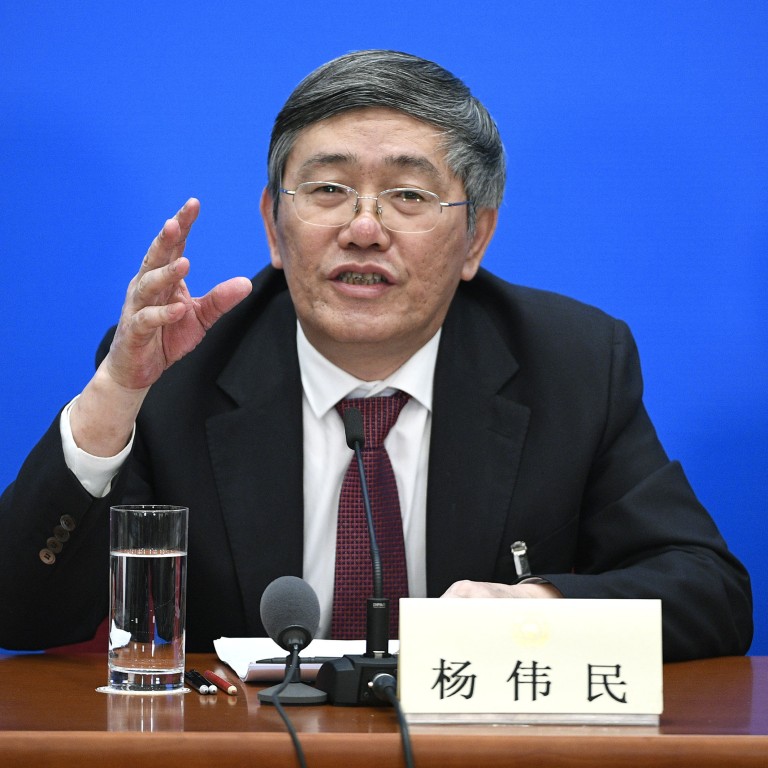
China urged to roll out ‘pragmatic, effective’ policies to stabilise trade and investment
- Yang Weimin, vice-chairman of the Beijing-based China Centre for International Economic Exchanges think tank, says China faces seven long-term challenges
- One task involves stabilising investment and trade as the nation aims to have the same per capita gross domestic product of a mid-level developed country by 2035
China must make every effort to retain leading foreign companies amid the ongoing global supply chain restructuring, while also ensuring the competitiveness of its domestic players haunted by high US tariffs, according to a one-time aide to former vice-premier Liu He.
Yang Weimin, vice-chairman of the Beijing-based China Centre for International Economic Exchanges think tank, warned that China is entering an “increasingly complex” international situation and should curb the outflow of foreign companies, at the same critical stage of overcoming the so-called middle-income trap, that occurs when growth stagnates and incomes stall.
“There is a tendency in the country to believe that the domestic market demand is strong enough to drive economic growth, but such a perception is lopsided,” said Yang.
Speaking at a conference about the digital economy in the central Chinese city of Wuhan on Monday, Yang called on authorities to study additional “pragmatic and effective” policies to stabilise trade and inbound investment.
‘Increasingly clear’ weak demand cools China exports, slowdown until late 2023
Stabilising foreign investment and trade represent one of seven long-term challenges China should tackle to ensure it can achieve its target of having a per capita gross domestic product (GDP) at the level of a mid-level developed country by 2035, he said.
Technology, funds and industrial know-how that come with overseas investors and income, as well as jobs generated by its once-booming exports, have played a pivotal role in China’s elevation to the world’s second-largest economy over the past four decades.
However, amid an increasingly unfriendly geopolitical environment and the disturbance of global supply chains due to the coronavirus, Beijing has shifted to rely more on its 1.4 billion-consumer market to drive growth as it seeks to reduce its dependence on overseas shipments and foreign technology.
The growth of retail sales, a gauge for domestic consumer demand, also missed expectations last month despite a lower comparison base from a year earlier.
Beijing has already stepped up its charm offensive to lure foreign investors, with commerce minister Wang Wentao meeting a group of US-funded firms on Monday as part of the latest efforts to heal weak confidence among the foreign business community.
Recurring scepticism about China’s business environment outlook, fuelled by Beijing’s now-defunct zero-Covid policy and rising focus on security, are also viewed as factors.
5 takeaways from China’s April economic data as youth unemployment worsened
Yang estimates that China will need an annual economic growth rate of 4.72 per cent between 2020-35 to achieve its per capita GDP target.
He also called on the government to reduce “improper interference” amid growing concerns about the future of the private sector in China.
He also called on the authorities to address the sluggish growth of consumer spending, boost technological innovation, maintain a comprehensive industrial system as a major manufacturing country, back the development of the platform economy and ensure stability in the property sector.

